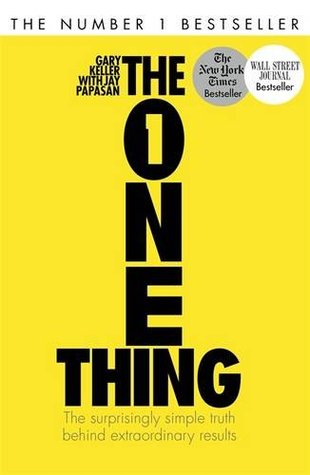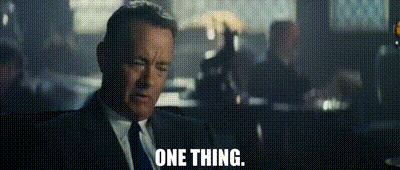 Productivity is a hot topic. Effective multi-tasking is treated as a superpower, when success is often more achievable and measurable if you prioritise the single most important piece of work which will sequentially unlock the next piece. By doing so, you create a “Domino Effect” similar to the one that’s popular in internet memes, where you start by toppling a tiny domino, which knocks down another that’s 50% bigger, and so on until you’re knocking down the Empire State Building if you’re not careful. It’s a transfer of energy that’s known as “geometric progression”, and in The One Thing, author Gary Keller shows how we can apply this in our work as well.
Productivity is a hot topic. Effective multi-tasking is treated as a superpower, when success is often more achievable and measurable if you prioritise the single most important piece of work which will sequentially unlock the next piece. By doing so, you create a “Domino Effect” similar to the one that’s popular in internet memes, where you start by toppling a tiny domino, which knocks down another that’s 50% bigger, and so on until you’re knocking down the Empire State Building if you’re not careful. It’s a transfer of energy that’s known as “geometric progression”, and in The One Thing, author Gary Keller shows how we can apply this in our work as well.
Busting the myths of success
You don’t wake up one day and win a marathon. There’s a process, and practice, and a linear progression through a series of increasingly difficult goals, each of which builds on the work that you put in previously. Success leads to further success, over time. But when it comes to workplace productivity, we’re too eager to buy into a number of myths about success, each of which Keller spends a chapter talking about:
- Everything is equally important: All of our work matters to somebody, to some extent, yet we throw all of our tasks onto a scary to-do list of doom. According to research, 20% of our effort produces 80% of our results, so if you focus on the correct 20% then you can increase your impact with less effort.
- Multi-tasking gets more done: The complexity of task-switching and associated interruptions erodes our time for deep thought. The average office employee is interrupted every eleven minutes; it’s critical to determine what matters most, and give that your undivided attention.
- Our willpower is limitless: Our energies shift throughout the day; they take a hit when we encounter a roadblock, and we can recharge them with food or rest. It’s vital to recognise how your energy fluctuates, and plan your day so that you’re doing your most valuable work when your energy is at its peak.
- We need our lives to be in total balance: There is no zen-like state where everything in our personal and professional lives is totally aligned. If we expend all of our effort on trying to keep on top of everything, we’ll fall into the multi-tasking trap again. The need to focus for success means that sometimes issues may go unaddressed (for instance, accepting that achieving our One Thing means deprioritising other tasks for a while; or accepting that our personal and family needs may be our One Thing in the moment).
- It’s too difficult to “think big”: Don’t be afraid to set challenging goals which are a long way off. How big you think will determine your level of success; act boldly and don’t be afraid to fail.
Choosing your One Thing
Keller suggests the following question to help you focus on the correct One Thing:
“What’s the one thing I can do such that by doing it everything else will be easier or unnecessary?”
You can use this for both large goals (e.g. to identify the next “epic” that you want to tackle), as well as for more immediate goals (i.e. what’s the most immediate action which moves you closer to that larger goal). And it’s certainly not limited to work; you can use the same question to help incrementally improve your fitness, or your personal relationships, or your finances.
The One Thing goes into much more detail about these two goal scopes - the so-called “purpose” and “priority” - but the final key component is how to find productivity: Keller recommends two techniques for this:
- Time blocking: Make time in your calendar for your holidays, or they’ll never happen. Try to set aside four consecutive hours in your day to solely focus on your One Thing. Set aside an hour each week to review your progress towards goal. And above all: protect this time. Don’t let other activities impinge on it, because by definition, they’re less important than the key activity that you’ve identified.
- Watch for barriers to productivity: Defend your “yes” by saying “no” to other activities. Accept that there will be an element of chaos, and that other work will have to wait. Adopt habits and practices which help you to retain or build your energy. And set yourself a distraction-free working environment so that you can achieve your most important goals most effectively.
By identifying, protecting and accomplishing your One Thing each day, over time you’ll see more of your increasingly-large dominoes falling with less effort than if you’d taken a more unfocused approach to task completion.
Key takeaways 📝
- The 80/20 rule tells us to focus the majority of our efforts on a small number of meaningful tasks.
- Identifying your most purposeful work - your One Thing - means you can protect it against other distractions.
- Become comfortable with deferring (or saying no to) things which aren’t as important as your key goal.

